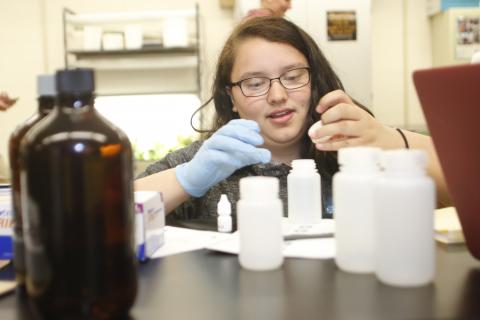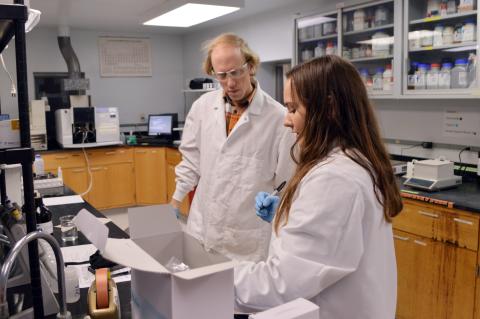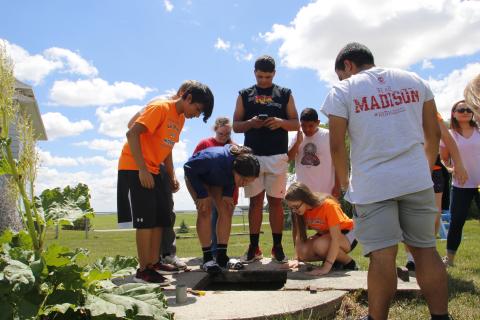Follow the know your well project on Facebook and Twitter.
Scientists haven’t always successfully communicated knowledge to the public, and it sometimes keeps communities from taking action to protect and manage resources. When it comes to groundwater and community drinking water, that gap is being filled within several Nebraska communities by a three-year Water Sciences Laboratory (WSL) citizen science program called Know Your Well.
In 2017 and 2018, Chris Olson, the program’s manager, drove 17,000 miles to meet with students and teachers in 10 Nebraska towns to help them understand and participate in the science of groundwater and drinking water. The program, supported by the University and a Nebraska Environmental Trust (NET) grant, provides testing kits and teaches students to test their own communities’ well water, analyze it, and then compare results with duplicate samples sent to WSL water scientists. Olson said the value of hands-on learning, as opposed to classroom lectures, is immeasurable.
For the past year, Nicole Schumacher, a UNL graduate student in environmental engineering, has assisted Olson and managed the program’s social media. “I’ve learned a lot about groundwater and water sampling, and it will help me in my future work,” she said.
According to Olson, program benefits go beyond testing and student education. Citizen science programs help scientists collect valuable data in higher quantities than they could gather on their own. Also, students are encouraged to share results through community presentations, allowing the program to spill over into policymaking to help community leaders make important water-related decisions.
“This program helps water users understand what’s going on in their own communities without preaching to them,” Olson explained. “That means people are more likely to understand the problems and help implement treatment – it gives everyone an opportunity to be a part of the solutions.”
A happy side-effect of the program is cultivation of interest in water-related careers. Faith Santana is one such student from McCool Junction, Nebraska. Next fall, she’ll be studying water sciences at UNL. “Before taking part in this program, I never would have given thought to what is in water,” Santana said. “It changed the way I look at things.”
In 2019, the Know Your Well program will guide student testing in nine more Nebraska communities. However, Olson said testing drinking water is not a skill needed only in Nebraska. “Everyone needs water,” he explained. “From those who drink it to those in agriculture who rely on it to grow our food.” He believes the Know Your Well program and lessons learned could be expanded to communities anywhere.



